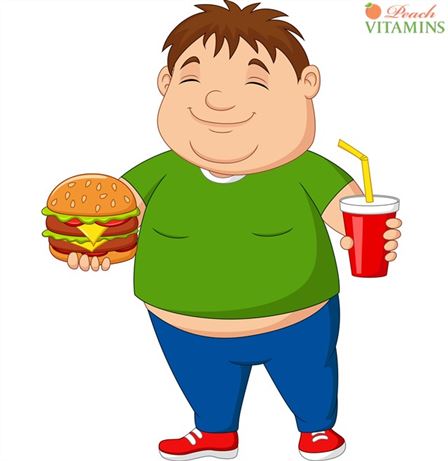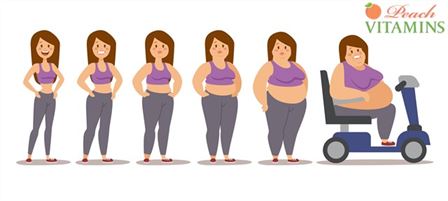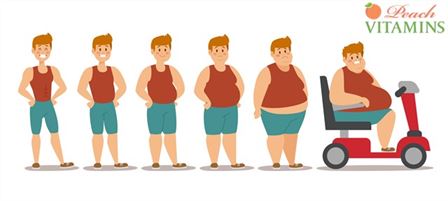What helps to lose belly fat? You’re trying to lose belly fat fast, but nothing seems to be working. There must be something else you could do to help you lose belly fat faster. A healthy diet and regular exercise are essential for losing belly fat. But there are other things you can do to speed up your results.
If you want to get rid of belly fat, you should start eating healthy food and exercising regularly. The first thing you need to do is eat fewer calories than you burn every day. If you are overweight, you should try to reduce your calorie intake by 500 calories per day.
To lose belly fat, you should also exercise for at least 30 minutes every day. It is recommended that you perform cardio exercises such as running, swimming, cycling, walking, etc.
Eat More Protein
Protein keeps you satiated throughout the day and provides energy during workouts. Protein can help you feel fuller longer, so it’s great for keeping your metabolism revved up while curbing cravings. It can even be used as part of a total body cleanse or detox program. Just make sure to choose high-quality protein over-processed sources like soy sauce and red wine, which have added sugar.
And if you want to boost its benefits, eat them with fiber-rich foods such as berries, broccoli, beans, lentils, whole grains, nuts, seeds, tofu, yogurt, avocado, eggs, salmon, sardines, chicken breast, turkey breast, lean beef, pork loin, lamb chops, and fish.
Eating more protein can also help you build muscle mass, making you look slimmer from all angles. So don’t worry too much about how much protein you’re consuming; focus on getting enough each week.
Metabolic Health
Metabolic health refers to how well your body uses energy from food. Metabolic syndrome occurs when three out of four risk factors develop: abdominal obesity, elevated blood pressure; abnormal cholesterol levels; and insulin resistance. Insulin resistance may lead to type 2 diabetes. People with metabolic syndrome are twice as likely to die prematurely compared to people without this condition.
The health benefits of green tea include reducing inflammation, improving heart function, lowering bad LDL cholesterol, boosting immunity, fighting cancer, preventing Alzheimer’s disease, protecting against cataracts, treating depression, promoting bone growth, increasing muscle mass, and slowing down aging. Drinking one cup of green tea daily will provide all these benefits!
Drink Water
It would help if you also drank plenty of water while working out. Water helps keep your body hydrated and keeps your metabolism high. Water is one of nature’s best gifts. We drink water because it keeps our bodies hydrated and functioning properly. This means that when you stay well-hydrated, you’ll naturally work harder during workouts. And since staying fit requires hard work, drinking lots of water makes sense.
Water also plays a crucial role in digestion. Your digestive system needs water to break down food into nutrients. Without adequate amounts of water, your stomach might not digest food correctly. That causes bloating gas, constipation, indigestion, nausea, diarrhea, vomiting, headaches, fatigue, dizziness, and dehydration. All of these symptoms can negatively impact your cardio training.
All in all, water is essential to maintaining good overall health. If you aren’t already drinking eight glasses of H2O every single day, start now. You won’t regret it.
Get Enough Sleep
Sleep plays a massive part in your overall health and well-being. You need to get at least 7-9 hours each night to function properly during the day. If you don’t have enough sleep, it will be harder to make healthy food choices and stick with them throughout the week. Lack of sleep makes it easier to overeat because you tend to eat more when you feel tired.
Heart disease, stroke, hypertension, diabetes, arthritis, asthma, chronic obstructive pulmonary disorder, osteoporosis, certain cancers, anxiety disorders, mood disorders, migraines, insomnia, irritable bowel syndrome, fibromyalgia, attention deficit hyperactivity disorder, and even dementia are some of the diseases associated with lack of sleep. The list goes on and on.
If you need to improve your sleeping habits, try going to bed earlier or later. Your heart rate slows down after you fall asleep, which allows your brain time to process information before you wake up. Try setting an alarm clock 30 minutes earlier or 15 minutes later to help you adjust to different schedules.
If you’re having trouble falling asleep, consider taking melatonin supplements. Melatonin is produced by the pineal gland and regulates circadian rhythms. Some studies suggest that melatonin could reduce stress hormones like cortisol and adrenaline, making it helpful for regulating sleep patterns.
Avoid Caffeine
Coffee can be good for you if it’s consumed moderately. But too much caffeine will only make your waist bigger over time. A cup or two of coffee before breakfast may give you some short-term energy boost, but drinking several cups each morning could slow down your metabolism. If you want to burn calories as fast as possible, skip the java!
Try cutting back on caffeinated products around midday instead. These sugar-sweetened beverages contain stimulants that keep you alert and energized longer than they would otherwise.
Exercise Regularly
Resistance training is another way to burn belly fat. It would help if you lifted weights regularly to get results. Weightlifting builds muscles, increases endurance, improves balance, strengthens bones, tones muscles, reduces stress, boosts self-esteem, and promotes good posture. Resistance training burns around 100 calories per hour. If you do strength training three times per week, you could burn between 300 – 400 calories per workout.
Aerobic training involves exercising for longer periods at higher intensities. It includes running, swimming, cycling, walking briskly, dancing aerobically, or playing sports. Aerobic exercises increase oxygen flow throughout the body by using large muscle groups. They improve cardiovascular fitness, strengthen lungs, reduce stress, lower blood pressure, promote healthy skin, hair, nails, teeth, joints, and eyesight, and prevent osteoporosis. The American Heart Association recommends aerobic activity every day.
High-intensity interval training combines cardio intervals with resistance training. HIIT workouts involve alternating bursts of intense movement with brief rest periods. During these breaks, you should perform light physical activity, such as stretching, calisthenics, jumping rope, or even just standing still. Resting long enough during this period allows your heart rate to return to normal.
Men lose belly fat faster because their bodies have more testosterone circulating through them. This hormone causes men’s metabolisms to run hot, burning off excess body fat quickly. Women also tend to store abdominal fat differently from men: While most men carry extra pounds around their midsection, women typically pack fat into their hips, thighs, buttocks, and rear end.
You don’t have to spend hours working out to see benefits.
Reduce Stress
Stress can be both good for you and bad for your waistline. It’s essential to understand how stress affects your body so that you can manage it effectively. If you have too much chronic stress, it may lead to anxiety or depression, which will make it harder for you to lose belly fat fast and keep it off.
On the flip side, if you experience acute stress, this type of stress increases your metabolism by releasing adrenaline into your bloodstream. Acute stress also triggers the release of hormones called catecholamines which help regulate energy expenditure.
So while acute stress might not be ideal when trying to shed pounds, it does serve its purpose.
The best ways to deal with stress include: talking to someone close to you, taking time to relax, doing something enjoyable, learning relaxation techniques, practicing mindfulness meditation, and finding meaning in life.
Cut Back on Alcohol
Alcohol can be very high in calories, so it’s essential to track how much you drink. If you find yourself drinking too much alcohol or if your body starts showing signs of withdrawal, then cut back slowly until you feel better.
You may also want to consider cutting out alcohol entirely for a few weeks before trying again.
Alcoholic beverages contain empty carbohydrates along with some protein. These carbs aren’t appropriately digested and instead pass through your system without being used up. This causes spikes in insulin levels and leads to increased hunger. So, consuming alcoholic drinks makes it easier to overeat because they trigger feelings of fullness faster.
Reduce Sugar Intake
Blood sugar spikes from eating sugary foods such as candy bars, cookies, cakes, pies, pastries, ice cream, sodas, sweetened cereals, bread, muffins, bagels, doughnuts, pasta dishes, rice dishes, potato chips, crackers, pretzels, popcorn, fruit juices, smoothies, yogurt drinks, milkshakes, frozen desserts, and alcohol can wreak havoc on your blood sugar levels.
Furthermore, consuming large quantities of sugary beverages late in the evening can interfere with your ability to fall asleep. This is due to the high amount of carbohydrates present in most soft drinks. Carbohydrates stimulate insulin production, which leads to increased glucose levels in the bloodstream. These elevated levels prevent you from getting sleepy.
Increase Fiber
Fiber can help you feel fuller longer, so it’s great for when you want to eat fewer calories but still stay satisfied. It slows digestion, meaning any food consumed after meals will take longer to digest, which means feeling full for longer. The best sources include whole grains like oatmeal or brown rice and vegetables such as broccoli or spinach.
Dietary fiber comes in two forms – soluble fiber and insoluble fiber. Soluble fibers dissolve in water, making their presence felt right away, whereas insoluble fibers don’t dissolve in liquid at all. Both types of dietary fiber work together to promote healthy digestive function. They bind to cholesterol and bile acids, preventing them from re-entering the intestinal tract, potentially damaging cells lining the intestines. Insoluble fibers also increase stool bulk, promoting regularity.
Fiber intake should not exceed 25 grams daily since excessive amounts have been linked to constipation. Some people need higher intakes of fiber, while others do fine with lower amounts. You might experience side effects including gas, bloating, cramping, diarrhea, flatulence, nausea, heartburn, headaches, and changes in bowel habits.
Conclusion
What helps to lose belly fat? There isn’t one single answer to this question. Instead, there are several different ways to shed excess pounds. Each method works differently depending on individual needs and preferences.
The critical thing to remember is that no matter what type of plan you choose, make sure you stick to it!
FAQs for What Helps To Lose Belly Fat?
What To Eat To Lose Belly Fat?
The best way to get rid of your love handles fast is by eating healthy foods. It would be best if you ate plenty of fruits and leafy greens because they contain high amounts of fiber, which will help you feel full for more extended periods.
Fiber also keeps you feeling satisfied, so it won’t be easy to overeat this food group. Fruits like apples and oranges are excellent sources of vitamin C as well as potassium. Potassium can reduce water retention, meaning you may start shedding some pounds faster!
A balanced diet rich in protein and low in carbs will keep hunger pangs under control. Protein contains amino acids that boost metabolism and burn body fats. Carbs provide quick energy; however, if eaten too frequently, they can lead to weight gain. Try to consume lean meats instead of fatty cuts. Fish is another good source of protein.
What To Drink To Lose Belly Fat?
If you tend to get hungry between meals, try drinking a cup of warm water with fresh lemon juice squeezed into it before bedtime. The citrus promotes healthy digestion while also satisfying hunger pangs until morning when you wake up naturally.
For even better results, add 2-3 drops of peppermint oil to the mixture. It provides relief from indigestion and stomach upset.
Artificial sweeteners aren’t recommended due to potential health risks associated with consuming these substances over long periods. Sugar alcohols like xylitol and erythritol are safe alternatives to sugar. These natural sweeteners taste just like actual sugars without raising blood glucose levels.
Xylitol is particularly effective at reducing tooth decay caused by bacteria. Erythritol doesn’t raise insulin levels either. If you’re looking to cut back on refined carbohydrates, consider using stevia extract instead.
What Not To Eat To Lose Belly Fat?
You should avoid processed foods and refined sugars. Processed foods tend to lack nutrients and consist mainly of empty calories. A diet plan based solely on these items will only result in weight loss failure.
Refined sugar causes spikes in blood glucose levels leading to insulin resistance and eventually diabetes. This condition makes it harder to process carbohydrates into usable fuel resulting in cravings for sweets. These sweet treats then become part of your everyday routine, causing you to pack on extra pounds over time.
Avoiding sugary drinks is vital because they contribute significantly to obesity.
What To Eat At Night To Lose Belly Fat?
Late-night fatty foods such as pizza or ice cream are usually loaded with saturated fats. Saturated fats raise LDL cholesterol levels which increase the risk of cardiovascular disease. It’s better to skip late-night snacks and opt for healthier options like nuts, seeds, fruit, yogurt, etc.
Belly fat storage happens after eating. So, make sure not to eat anything heavy right before going to bed. You’ll feel fuller longer and enjoy fewer snacking episodes throughout the day.
Eating small portions several times during the day rather than three large ones will help prevent overeating later in the evening. Smaller servings allow you to stop sooner and leave room for dessert.
10 Best Exercises to Lose Belly Fat Quickly – The Trend Spotter
Source: (thetrendspotter.net)
Weight loss: Seven ways to ‘melt belly fat naturally’ as per Ayurveda
Source: (indianexpress.com)
[wps_products product_id=”6543179546659″ html_template=”product.php”]








